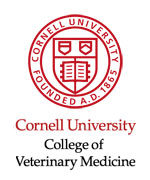In 2001, at an international scientific
meeting held in Pilanesberg National Park in South Africa, the
Wildlife Disease Association and the Society for Tropical Veterinary
Medicine jointly prepared and released a resolution calling for
the recognition of animal health sciences as critical to the
design and management of sustainable programs for both livestock
and wildlife. This resolution, which is targeted at multilateral
and bilateral donors as well as governmental authorities, encourages
agencies to consider potential wildlife health impacts when development
projects (particularly livestock development) are being planned
or implemented. These two professional societies, representing
over 1,000 scientists and meeting together to address the issue
of diseases transmitted between domestic and wild animals, wished
to emphasize the interrelatedness of development actions and
the environment, the potential for adverse consequences in projects
that neglect to consider wildlife disease issues, and the importance
of considering the true and overall costs and benefits to natural
as well as human-made production systems when evaluating or defining
sustainable projects. The resulting
“Pilanesberg Resolution” summarizes what we still need
to be doing to proactively foster successful conservation and development
outcomes at the wildlife / livestock / human health interface:
Resolution by the Wildlife Disease Association and the Society
for Tropical Veterinary Medicine calling for international donor
community recognition of animal health sciences as critical for
the design and management of sustainable wildlife and/or livestock-based
programs.
Whereas, contact and resource competition between wildlife and
livestock continuously expand as more and more land comes under
some form of human use;
whereas, wild and domestic animals have many diseases in common
and both groups can and do play different roles in disease epidemiology,
and recognizing that these interrelationships can have significant
implications for disease prevention or control schemes;
whereas, livestock-based and wildlife-based activities are undertaken
separately as well as jointly as primary modes of sustenance,
economic betterment and support of rural livelihoods, with the
sustainability thereof inextricably linked to ecologically appropriate
land-use choices;
whereas, the sustainable management of livestock as well as
the conservation of wildlife require ground-level stewardship,
including disease surveillance, by those communities closest
to and most dependent on these resources;
whereas, numerous governmental and non-governmental organizations
worldwide provide financial resources, incentives, leadership,
and advice targeted at boosting productivity and sustainability
of the livestock and/or natural resource management sectors without
always recognizing concomitant disease implications, which can
be significant and complex;
whereas, limited funding streams for wildlife and/or livestock
initiatives require prudent use;
whereas, donor organizations seldom possess sufficient internal
expertise regarding the myriad disease issues implicit in ensuring
the success of wildlife and/or livestock-based programs; and
whereas, the Wildlife Disease Association and the Society for
Tropical Veterinary Medicine, along with other local, national,
and international organizations, represent professionals who
possess unique skills, knowledge, and experience with wild and
domestic animal diseases and their underlying causes, ecological
relationships, and economic implications.
Now, therefore, be it resolved that, the Wildlife Disease Association
and the Society for Tropical Veterinary Medicine urge those organizations
contemplating the funding and implementation of programs involving
wildlife or livestock resources to:
* encourage projects that foster integrative approaches to livestock
production, food security, human health, economic growth, democracy
and governance, biodiversity conservation, and natural resource
management in order to build upon synergies among these sectors
while precluding conflicting policies and/or negative impacts
on either livestock or wildlife health;
* formalize steps in their project design, environmental impact
assessment, and implementation processes which address wildlife,
livestock, and rangeland health issues and their implications
for sustainability and thus success, recognizing that these projects
may alter fundamental relationships between animal hosts and
potential pathogens and parasites;
* when contemplating projects involving domestic and/or wild
animals, establish relationships with appropriate wildlife and
domestic animal health-oriented organizations and recognized
local, national, regional, and international experts, thereby
identifying an appropriate pool of professionals who can assist
in ensuring the inclusion of timely, science-based advice in
planning, implementation, and monitoring processes; and
* put a premium on local human capacity-building to address
the long-term technical needs of development activities that
require expertise in domestic animal health and wildlife health
by building adequate support into project design and implementation
so as to engage local expertise and to foster capacity-building
at professional as well as community levels as a first-tier priority
within and beyond the life-spans of such programs.
For more details (PDF of complete paper):
Karesh, W. B., Osofsky,
S. A., Rocke, T. E., and P. L. Barrows. 2002. “Joining
Forces to Improve Our World,” Conservation Biology, vol.
16: 1432-1434.
|










